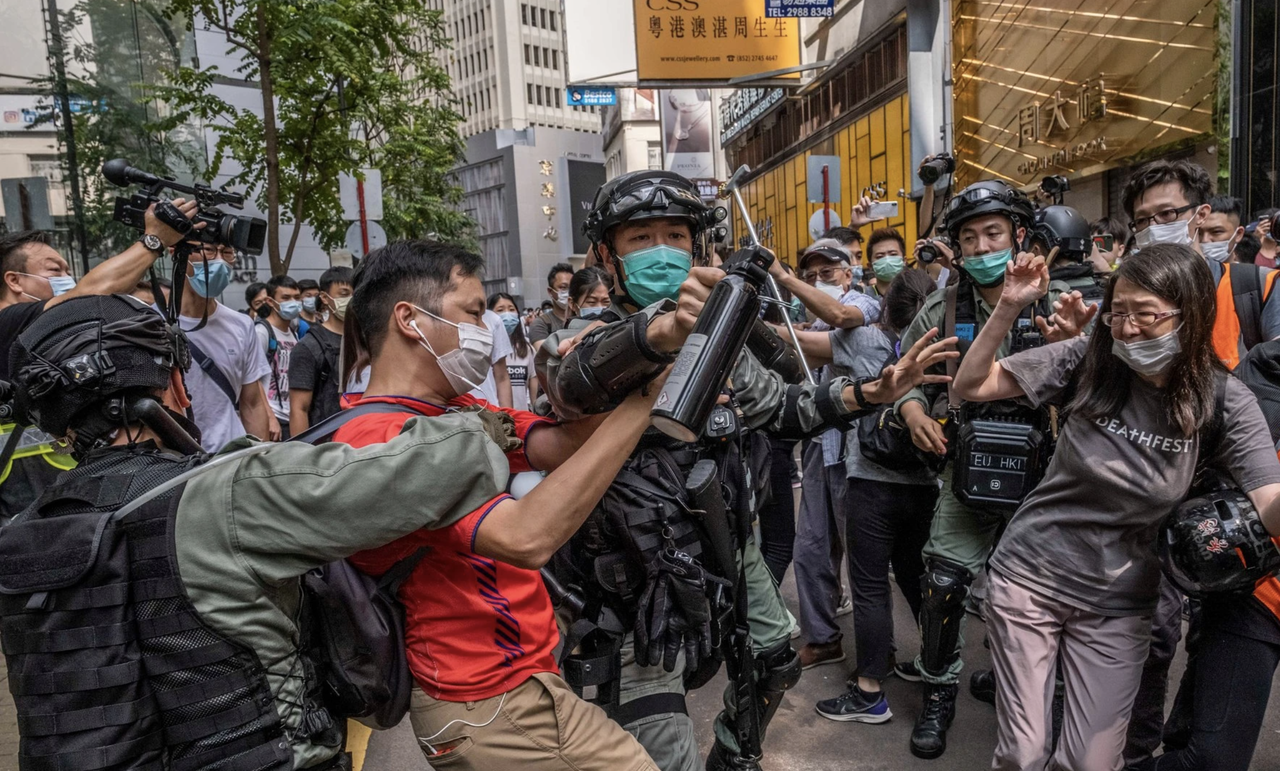 Beijing will initiate a far-reaching 'crackdown' to impose standard Chinese law on privileged Hong Kong once it takes effect in September.
Beijing will initiate a far-reaching 'crackdown' to impose standard Chinese law on privileged Hong Kong once it takes effect in September.By Tyler Durden: One day after the US declared that Hong Kong is no longer "autonomous" from Beijing, China's Politburo Standing Committee on Thursday officially wove a controversial new "National Security" resolution that was approved during last week's National Party Congress into Hong Kong's 'Basic Law' - the de facto constitution left by the British - in defiance of President Trump, and a broader backlash across the West, which has repeatedly stood up to defend Hong Kong's freedoms.
According to the Jew York Times, Beijing will probably initiate a far-reaching 'crackdown' to impose the new law on Hong Kong once it takes effect in September.
Activist groups could be banned. Courts could impose long jail sentences for national security violations. China’s feared security agencies could operate openly in the city.
As we reported last night, losing its 'special status' conferred by the US could strip Hong Kong of its 'international city' designation. As one expert said, Beijing no longer cares about "killing the golden goose" - that is, closing what has been for decades a critical portal to the West and the global financial system.
It's still unclear how many of Hong Kong's freedoms Beijing intends to strip away: this won't become clear until later in the year.
Per the JYT, Hong Kong’s Chief Executive Carrie Lam appeared to hint that certain civil liberties might not be an enduring feature of Hong Kong life. "We are a very free society, so for the time being, people have the freedom to say whatever they want to say," said the chief executive, Carrie Lam, noting, "Rights and freedoms are not absolute."
Though US equity futures pointed to a higher open again on Thursday, analysts cautioned that the growing tensions could trigger a massive "risk off" move in markets in the situation escalates. Pictet’s Luca Paolini said on Bloomberg Television that markets seem to be ignoring this because they're assuming it's just rhetoric.
"For now it’s just words, but if the escalation takes place it’s the worst possible time to have this kind of escalation considering the global economy continues to be incredibly weak," Paolini said.
Source
No comments:
Post a Comment